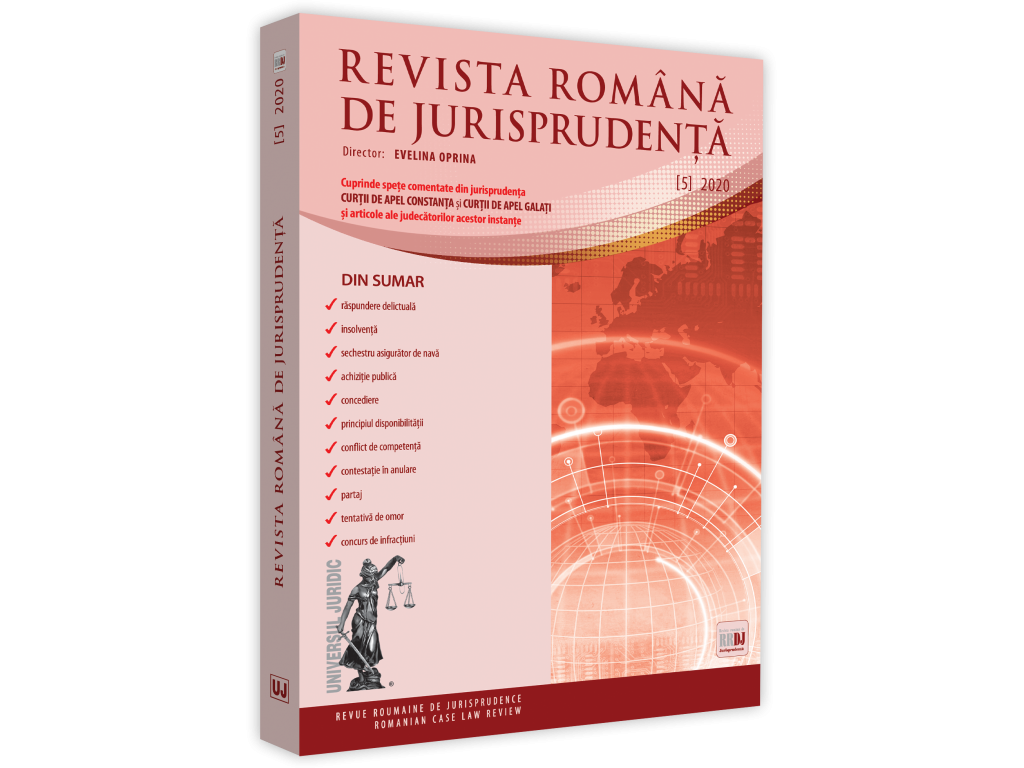Current difficulties in the management of the Black Sea fish resources in the context of the application of Community fishing regulations
DEZBATERI
Abstract
The fishery resources are part of the fauna and the fragile natural environment, exposed to numerous degradations and threats. For these reasons, the fishing activity as a professional and recreational activity, was regulated internally and internationally by different norms aimed at the protection and sustainable management of living aquatic resources.
These regulations, designed to ensure the maintenance of economically exploitable resources and the alignment of fishing activities to the new environmental requirements, have diversified over time, due to direct environmental threats and risk factors such as water pollution and heating, increasing the number of hydrological facilities, improving fishing techniques, developing industrial fishing or degradation of the natural environment.
For this reason, both at national and international level, many instruments have been adopted to help conserve, manage and capitalize on these important resources, most of the regulations adopted at European level becoming part of domestic law, by virtue of their binding nature and the direct effect they enjoy.
These instruments also include the European Fisheries and Aquaculture Regulations which, once adopted and published, have become an integral part of national law and a source of inspiration for the internal legislator in its attempt to align with European policy standards common in the field.
Despite their explicit nature, the Community Fisheries and Aquaculture Regulations may interfere with certain provisions of national law or with different international instruments to which different states have adhered over time, so that the legal conflicts that have arisen can not be resolved quickly and unanimously accepted by law practitioners, especially in the case of cross-border disputes.
The difficulties generated by this type of policy are also due to the national legislative differences, in those situations where the conditions imposed by the fisheries policy adopted at Community level are endeavored by the Member States, leaving them also a margin of discretion in transposing the law internal provisions of Community law, which may lead to differences in treatment in the same legal situations.
This study aims to draw attention to such a situation, arising from the differences in approaches in the field of management and protection of the Black Sea fishery resources, in order to identify optimal medium and long term solutions in the cooperation between Romania and Bulgaria, to help determine the legal areas of the two states, to effectively protect endangered species, to preserve other marine species, to establish a mutual information mechanism and to identify common legislative solutions to help eliminate the differences in treatment applicable citizens of the two countries.
Keywords: fishing and aquaculture; protecting and preserving fish stocks at national level; sustainable management of Community resources; Community common fisheries policy; Community Regulations on Fisheries and Aquaculture








